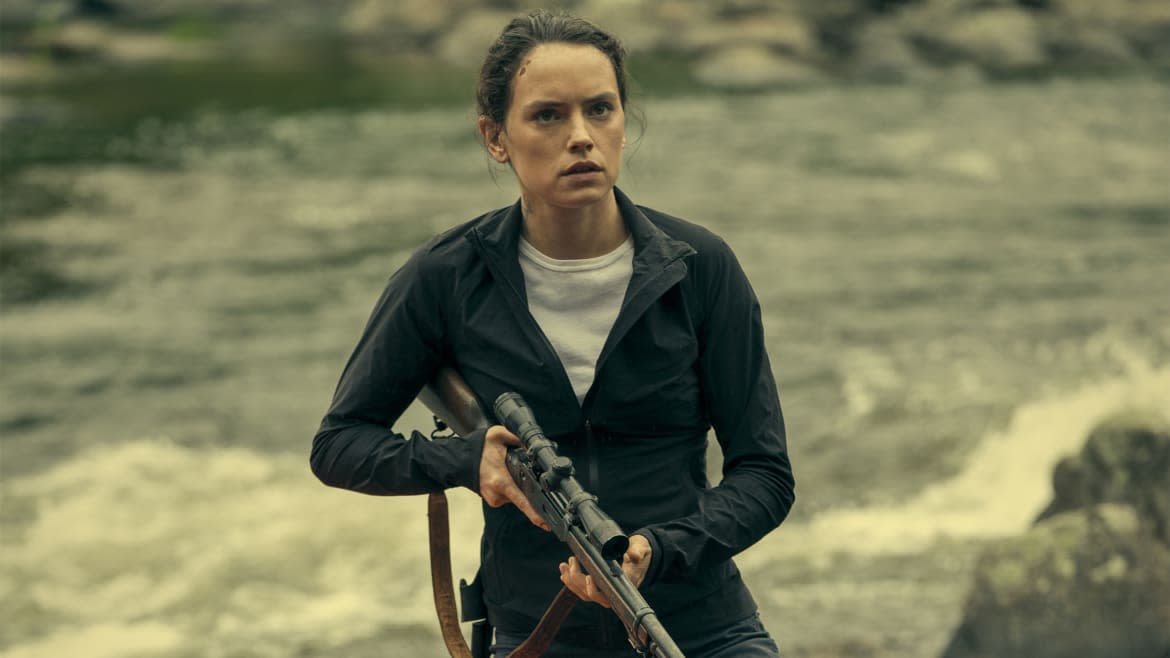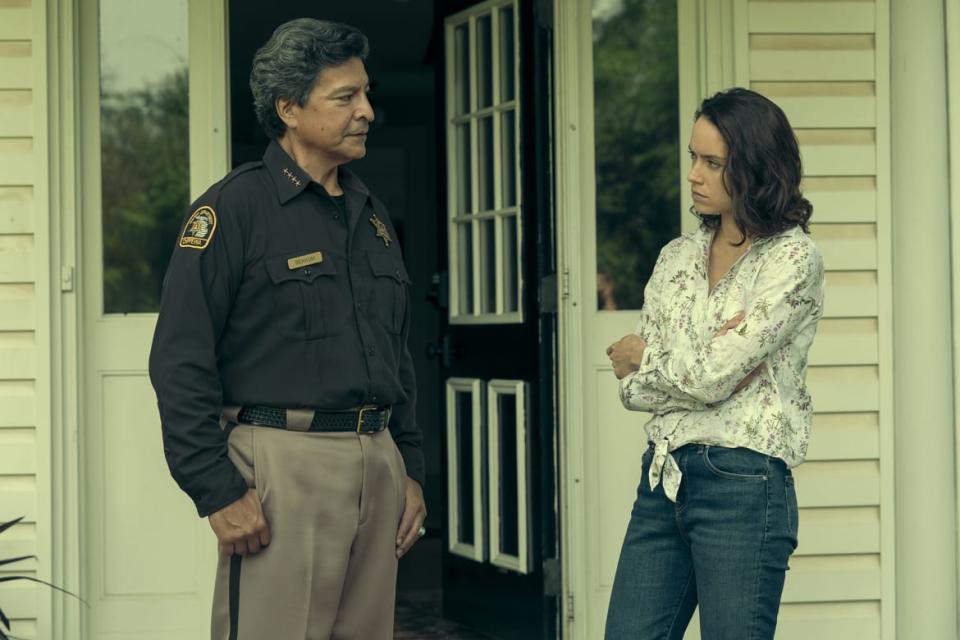Is Daisy Ridley’s ‘The Marsh King’s Daughter’ the New ‘Where the Crawdads Sing’?

- Oops!Something went wrong.Please try again later.
- Oops!Something went wrong.Please try again later.
Feel that chill in the air, followed by a feeling of alienation from the trappings of modern society? That’s a sign of Hot Girl Summer being replaced by Marsh Girl Autumn. Following the warm-weather success of Where the Crawdads Sing, the film adaptation of a bestselling novel about a sensitive marsh girl accused of murder by her shoe-wearing, belt-buying social betters, we’re seeing a marshy renaissance: In No One Will Save You, Kaitlyn Dever’s quiet, isolated life of folksy hobbies masking her inner pain had real marsh-girl energy. Now The Marsh King’s Daughter arrives as an even stronger heir to the Crawdads throne, in that it, too, understands that a true creature of the American marsh can only be played by a stunningly beautiful British actress with perfect skin and a floral name.
Helena Pelletier, Daisy Ridley’s character in The Marsh King’s Daughter, had an even more hardscrabble upbringing than the young woman Daisy Edgar-Jones played in Crawdads. After all, Helena’s childhood accessories appear to be weapons and DIY tattoo kits, rather than Anthropologie-ready fashions and, one assumes, some nice organic skin cream. First seen as a child played by Brooklynn Prince, Helena bonds with her survivalist father, Jacob (Ben Mendelsohn), as he teaches her to hunt and generally fend for herself from their idyllic cabin in the woods. In a savvy bit of obfuscation via close point-of-view, Helena doesn’t understand why her mother (Caren Pistorious) sometimes seems contentious with Jacob—until a stranger on a four-wheeler happens upon their marsh-adjacent cabin, and suddenly Helena is part of an impromptu escape plan with her fast-thinking mom.
Even when she’s out of the woods, Helena struggles to process what she learns: that her mother was abducted by Jacob and—though the movie doesn’t exactly say it out loud—she is the product of rape. With Jacob heading toward prison for his crimes, the movie jumps forward to Helena as an adult, played by Ridley. She’s making a go of a normal life, married to Stephen (Garrett Hedlund) and raising a daughter of her own, while still observing the marsh-girl actress rule by naming the kid Marigold (Joey Carson). Though Helena has broken the sense of attachment to her father/captor, she still hasn’t exactly resolved her childhood trauma-in-retrospect, preferring to keep her past a secret from everyone, even her family. (Hedlund is forced to embody a champion-level lack of sympathy as the husband who seems vaguely annoyed from the jump.) But when Jacob’s prison transport meets with a strange accident, her past can no longer be suppressed or avoided.
Like its marsh-girl siblings, The Marsh King’s Daughter splits its time between gawking at a character’s inability to easily fit into polite society and indulging in a fantasy of self-reliant specialness. Ridley seems particularly attracted to that combination, whether in her trademark role as the desert-planet loner Rey in the Star Wars sequels or as the office-cubicle loner Fran in the still-unreleased Sundance entry Sometimes I Think About Dying, basically a marsh girl with a day job. It’s enough of a preoccupation for this still-developing star, and enough of a more broadly applicable character type, to beat any charges of simply ripping off Crawdads. (Plus, the Marsh King’s Daughter source material actually predates the Crawdads book.)

Gil Birmingham and Daisy Ridley.
There is a less flattering point of comparison, however, and that is Room, another novel-turned-film about a psychopath creating a familial bond through horrific abuse and subjugation. That gripping story was made more horrifying by its rigorous adherence to a child’s point of view, obscured by his innocence, and the labor of his mother. Marsh King’s Daughter toys with this a little bit in the early going before surrendering to the mechanics of a stalker thriller, the kind of movie where the predator leaves one tiny detail chillingly amiss to signal, unprovably, that he’s been skulking around the home of his prey.
The Unforgivable Issues With the ‘Where the Crawdads Sing’ Film
Director Neil Burger has journeyed his way through a filmography more impressive for its genre range than its quality, and here he throws himself into a thriller’s concise, mid-level stylizations, all verdant greens and dramatic angles. There are pleasures, too, in pitting Mendelsohn, as a predictably wily and nigh-unstoppable middle-aged man, against Ridley’s equally predictable not-my-daughter-you-bastard rage. (Star Wars fans may further appreciate Rey dueling against Director Krennic from Rogue One, sans lightsaber.) For much of the movie, Burger avoids the languorous, faux-literary ponderousness that plagues plenty of bestseller adaptations—the sense of a movie that has been informed by sales numbers that it is very important business indeed.

Garrett Hedlund.
Yet there is a tastefulness to The Marsh King’s Daughter that leaves the movie idling, for some stretches, between evoking genuine psychological challenges and going all-out into survival-thriller mode. Ridley is talented enough for either, and it would be especially fun to see her inhabit a more desperate, less swashbuckling action hero. So far, though, even the more genre-inflected marsh-girl movies have conducted themselves with a little too much decorum—a polite way of saying they take a cheesily therapeutic approach to the lookie-loo pulp they’re peddling. At times, The Marsh King’s Daughter seems to go looking for feral B-movie rawness, and comes back with generic healing.
Get the Daily Beast's biggest scoops and scandals delivered right to your inbox. Sign up now.
Stay informed and gain unlimited access to the Daily Beast's unmatched reporting. Subscribe now.

